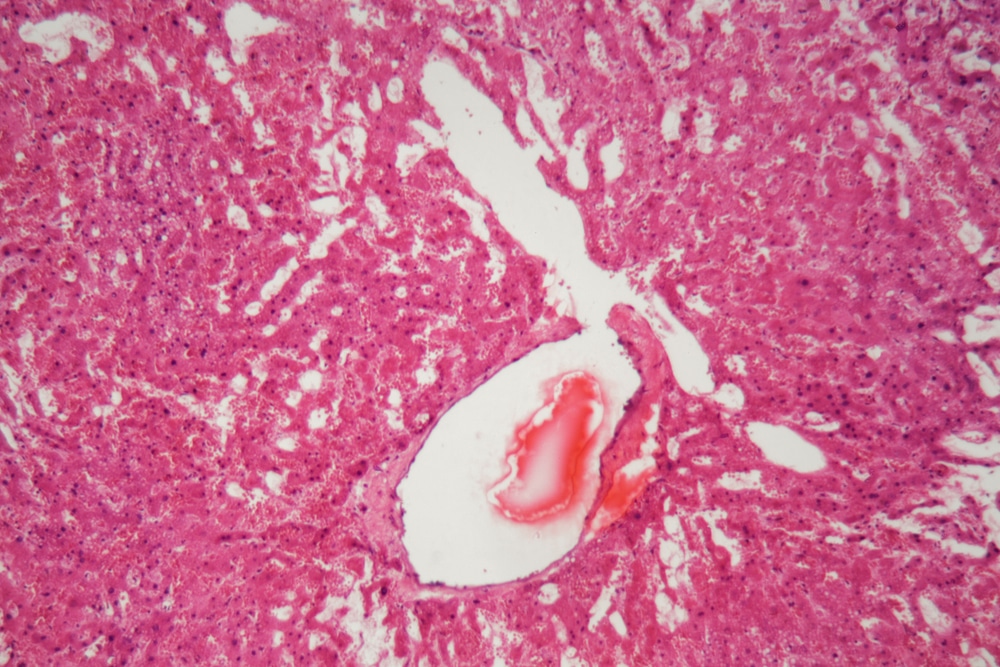Ionis Pharmaceuticals, Inc. has presented positive results from a planned 35-week interim analysis of the phase 3 NEURO-TTRansform study of Ionis and AstraZeneca’s eplontersen in patients with hereditary transthyretin-mediated amyloid polyneuropathy (ATTRv-PN).
In the study, eplontersen demonstrated a statistically significant and clinically meaningful change from baseline for its co-primary and secondary efficacy endpoints compared to the external placebo group. Eplontersen demonstrated a favorable safety and tolerability profile. The study results were presented at the International Symposium on Amyloidosis (ISA) in Heidelberg, Germany.
In the study, eplontersen achieved an 81.2% mean reduction in the co-primary endpoint of serum transthyretin (TTR) concentration compared to baseline, demonstrating reduced TTR protein production. Eplontersen also demonstrated a significant treatment effect on the co-primary endpoint of modified Neuropathy Impairment Score +7 (mNIS+7), a measure of neuropathic disease progression, with a statistically significant difference in mean change from baseline versus the external placebo group.
Secondary endpoints met
The study also met its key secondary endpoint of change from baseline in the Norfolk Quality of Life Questionnaire-Diabetic Neuropathy (Norfolk QoL-DN), showing that treatment with eplontersen significantly improved patient-reported quality of life compared to the external placebo group.
Eplontersen demonstrated a favorable safety and tolerability profile. In the study, the rate of treatment emergent adverse events (TEAEs) in the eplontersen group was either lower or similar compared to placebo across all major categories. There were no TEAEs of special interest leading to drug discontinuation.
The study data are consistent with the clinical profile seen across Ionis’ other LICA programs, further validating how the company’s LIgand-Conjugated Antisense technology positions Ionis to deliver potentially transformative treatments for a broad range of unmet medical needs.
“Eplontersen showed clinically meaningful improvement in neuropathy impairment and quality of life measures relative to baseline. The significant efficacy, combined with a favorable safety and tolerability profile, indicate that eplontersen has the potential to be an important therapeutic option for patients living with this debilitating and fatal disease,” said Teresa Coelho, a neurologist and neurophysiologist at Hospital Santo António, Centro Hospitalar Universitário do Porto, Portugal, and an investigator for the NEURO-TTRansform study. Coelho presented data from the interim analysis at ISA.
“The promising results from NEURO-TTRansform show that eplontersen had a positive impact on disease progression and improved quality of life in a substantial number of patients. We are excited about the potential for delivering a new treatment option to patients living with this relentless and devastating disease,” said Eugene Schneider, Ionis’ executive vice president and chief clinical development officer.
Seeking approval
Based on the study results, Ionis and AstraZeneca will seek regulatory approval for eplontersen for ATTRv-PN and plan to file a new drug application with the U.S. Food and Drug Administration this year.
As part of a global development and commercialization agreement with AstraZeneca, eplontersen is being jointly developed and commercialized by both companies in the U.S. and will be developed and commercialized in the rest of the world by AstraZeneca (with the exception of Latin America).
Eplontersen was granted Orphan Drug Designation in the U.S. It is also currently being evaluated in the phase 3 CARDIO-TTRansform study for amyloid transthyretin cardiomyopathy (ATTR-CM), a systemic, progressive and fatal condition that leads to progressive heart failure and death within four years from diagnosis.
About NEURO-TTRansform
NEURO-TTRansform is a global, open-label, randomized study evaluating the efficacy and safety of eplontersen in patients with hereditary transthyretin-mediated amyloid polyneuropathy (ATTRv-PN). The study has enrolled adult patients with stage 1 or stage 2 polyneuropathy and will compare efficacy of eplontersen to the historical placebo arm from the TEGSEDI (inotersen) NEURO-TTR registrational study that Ionis completed in 2017. The final primary endpoint analysis will be completed at week 66 and all patients will be followed until week 85 when they will have the option to transition into the open label extension study.
About Eplontersen
Eplontersen is an investigational antisense medicine that uses Ionis’ LIgand-Conjugated Antisense, or LICA, technology designed to inhibit the production of the transthyretin (TTR) protein at its source. Eplontersen, which is planned to be delivered to patients via a self-administered autoinjector, is in development to treat all types of ATTR, a systemic, progressive and fatal disease.
About hereditary transthyretin amyloidosis (ATTRv)
Hereditary transthyretin amyloidosis (ATTRv) is a severe, progressive, and life-threatening disease caused by the abnormal formation of the TTR protein and aggregation of TTR amyloid deposits in various tissues and organs throughout the body, including in peripheral nerves, the heart and intestinal tract.
The progressive accumulation of TTR amyloid deposits in these organs often leads to intractable peripheral sensorimotor neuropathy, autonomic neuropathy, and/or cardiomyopathy, as well as other disease manifestations.
Hereditary transthyretin amyloidosis causes significant morbidity and progressive decline in quality of life, severely impacting activities of daily living. The disease often progresses rapidly and can lead to premature death. The median survival is 4.7 years following diagnosis.





